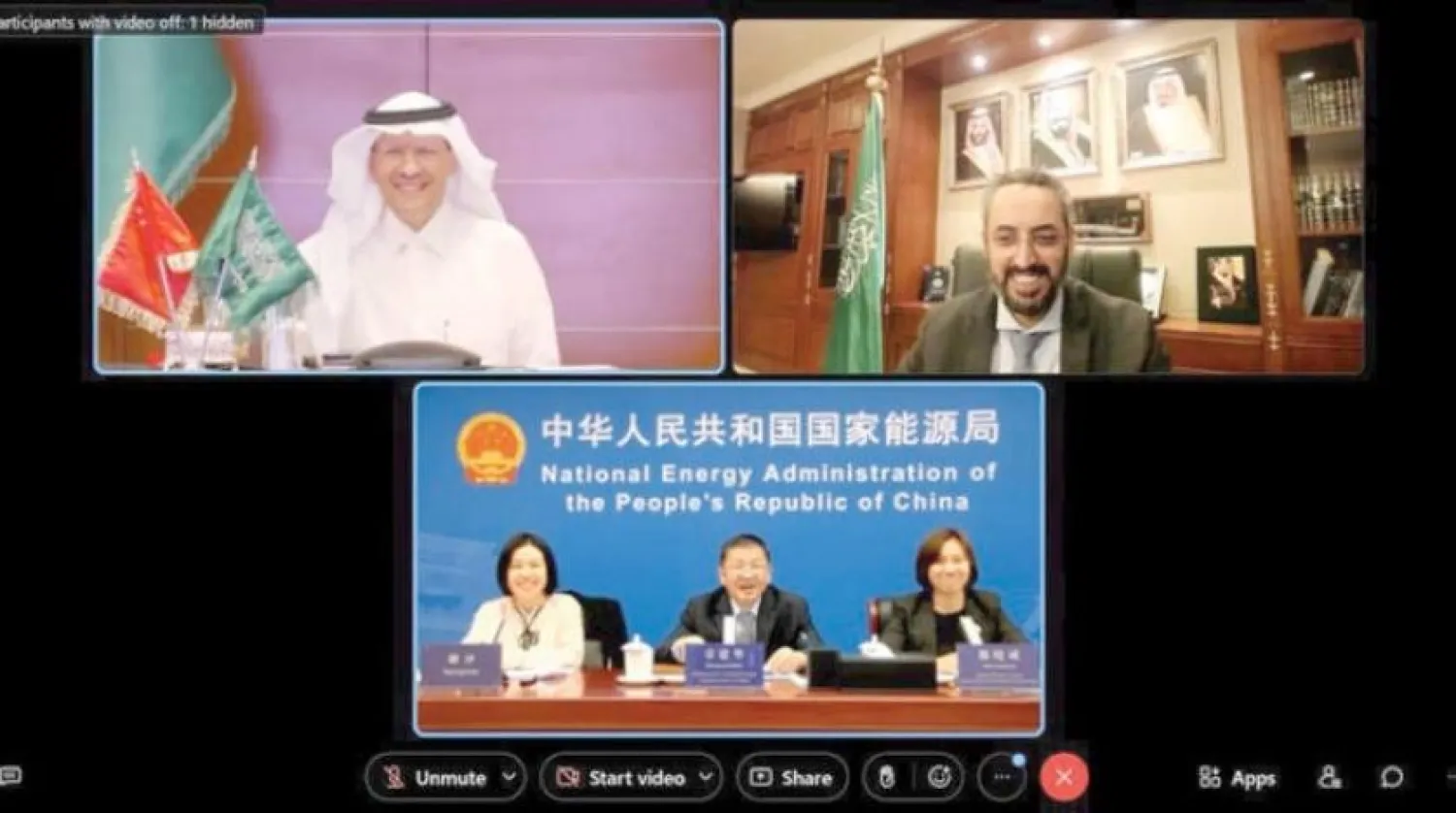Saudi Arabia and China have agreed to cooperate in the field of "peaceful use of nuclear energy" and establish a regional hub for Chinese manufacturers to use the Kingdom's strategic location linking three continents.
Saudi Energy Minister Prince Abdulaziz bin Salman held on Friday an online meeting with China’s National Energy Administrator Zhang Jianhua.
During the call, the two sides affirmed their keenness to work on enhancing cooperation between the two countries in the energy field.
They also stressed the importance of cooperation in electricity, renewable energy, and clean hydrogen through research and development.
The discussions included cooperation and joint investment in the “Belt and Road Initiative,” investing in the integrated refining and petrochemical industry in both countries and enhancing cooperation in the energy sector supply chains.
The two sides affirmed their willingness to cooperate in maintaining the stability of the global oil market, stressing that Saudi Arabia is "the most reliable partner and source of crude oil supplies to China."
They also confirmed their willingness to work together to support the stability of the international oil market, continue close communication, and strengthen cooperation to address emerging risks and challenges.
Saudi Arabia and China affirmed their readiness to cooperate in maintaining the stability of the global oil market, their continuation of effective communication, and strengthening cooperation to face future challenges.
They also highlighted the importance of long-term and reliable oil supply to stabilize the global market that endures various uncertainties due to complex and changeable international situations, noting that the Kingdom continues to be China's most reliable partner and supplier of oil.
The two sides pointed out to the importance of ongoing talks between China and Saudi Arabia, noting that the Kingdom remains the most reliable partner and exporter of crude oil supplies.
Meanwhile, oil prices fell on Friday for a second week, as investor concerns about the impact of sharp increases in interest rates on energy consumption dashed hopes related to increased Chinese demand and production cuts by the Organization of the Petroleum Exporting Countries (OPEC) and its allies.
Federal Reserve Bank of Philadelphia President Patrick Harker said that given the current situation, the bank is trying to slow the economy and will continue to raise interest rates in the short term.
Brent crude fell $1.16, or 1.3 percent, to $91.22 a barrel, while US West Texas Intermediate crude fell 74 cents, or 0.9 percent, to $83.77 a barrel.
Brent is on track to record a weekly increase of 0.4 percent, while WTI is expected to decline by two percent.









